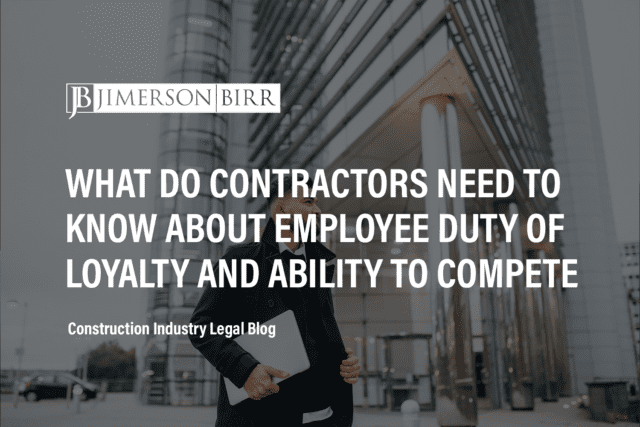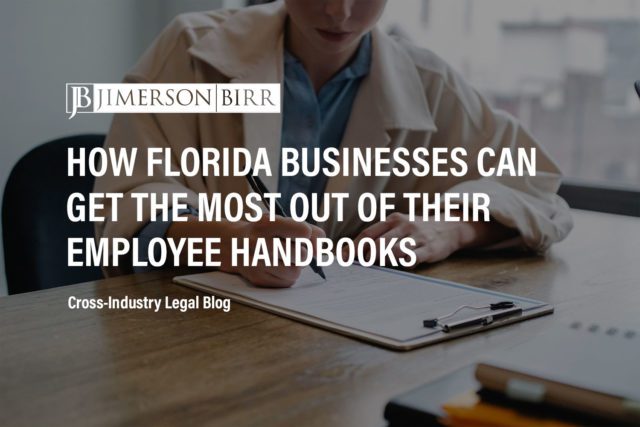What do background checks encompass?
The process of conducting a background check involves several essential steps. Employers must first obtain written consent from individuals before engaging a Consumer Reporting Agency (CRA) to collect information. Then, the employer specifies the data to be checked, including criminal records, credit history, employment, education, etc. The CRA gathers data from diverse sources and compiles it into a comprehensive report, which the employer reviews to assess the candidate’s qualifications.
If adverse action is considered based on the report, the employer must comply with Fair Credit Reporting Act (FCRA) guidelines, including providing pre-adverse and adverse action notices. Confidentiality, compliance with legal regulations, and fairness in handling information are crucial throughout the process, ensuring individuals are informed of any adverse decisions based on the background check.
Need help with training, compliance, or litigation to protect your workplace? Schedule your consultation today with a top employment law attorney.
Which laws, rules, and regulations apply to background checks?
The FCRA at the federal level mandates written consent from applicants or employees, provision of pre-adverse action notices, and adherence to specific adverse action procedures. Additionally, Florida has its own set of laws. The Florida Civil Rights Act prohibits discrimination based on various factors, while Florida Statutes Chapter 435 regulates background screenings for specific positions, including those involving work with vulnerable individuals.
Employers must adhere to federal and state regulations to minimize legal exposure and ensure equitable employment practices.
What are common issues associated with background checks that lead to litigation against employers?
Several legal risks exist regarding background checks under the FCRA that may lead to disputes between employees and employers. Some of these risks include:
- Failure to obtain written consent: Employers must acquire written consent from job applicants before procuring a consumer report. Failure to do so may result in litigation.
- Improper use of background check information: Using this information in a discriminatory manner can lead to legal issues under the FCRA and the Florida Civil Rights Act.
- Non-compliance with adverse action procedures: Employers must follow specific procedures when taking adverse action based on a consumer report, failure of which can result in litigation.
- Negligent hiring claims: Employers may face such claims if they fail to conduct appropriate background checks and hire someone who causes harm.
What are the perquisites to file a lawsuit regarding background checks under the FCRA, and what legal defenses may employers assert?
To file a lawsuit related to background checks under the FCRA, employees must meet certain prerequisites, including:
- Demonstrating a violation of FCRA, such as failing to obtain consent or not following proper adverse action procedures.
- Proving harm, such as being denied employment or promotion, due to the employer’s FCRA violation.
- Timely filing of their lawsuit within the applicable statute of limitations, generally two years for FCRA claims.
Employers can assert several legal defenses against background checks and FCRA litigation claims, including:
- Compliance with FCRA: Employers can demonstrate that they complied with all FCRA requirements, such as obtaining proper consent and following the required adverse action procedures.
- Bona fide occupational qualification: Employers may argue that the information obtained in a background check is a bona fide occupational qualification for the specific job in question and, therefore, the adverse action was justified.
- Statute of limitations: Employers can assert that the employee’s claim is time-barred if not filed within the applicable statute of limitations.
To determine whether your unique situation may necessitate litigation or another form of specialized advocacy, please contact our office to set up your initial consultation.
What measures must employers take to comply with the FCRA when conducting background checks?
Employers in Florida must take several measures to comply with the FCRA when conducting a background check:
- Obtain written consent: Employers must obtain written consent from job applicants before procuring a consumer report.
- Provide clear disclosures: In writing, employers must provide a clear and conspicuous disclosure informing the applicant that a consumer report may be obtained for employment purposes.
- Adhere to adverse action procedures: If an employer plans to take adverse action based on a consumer report, they must follow specific procedures, including providing pre-adverse and adverse action notices.
- Ensure non-discrimination: Employers must not use background check information in a discriminatory manner, as it may lead to legal issues under the FCRA and the Florida Civil Rights Act.
Please contact our office to set up your initial consultation to see what forms of legal advocacy or intervention may be available for your unique situation.
Frequently Asked Questions
- Can an employer in Florida run a background check on a current employee?
Yes, an employer can run a background check on a current employee, provided they have obtained the employee’s written consent before procuring the consumer report. - What are the penalties for violating the FCRA in Florida?
Violations of the FCRA can result in civil liability, including actual damages, statutory damages, and attorney’s fees. In some cases, willful noncompliance may lead to punitive damages. - How can employees dispute inaccuracies in their background check reports?
Employees can dispute inaccuracies in their background check reports with the consumer reporting agency (CRA) that provided the report. The CRA must investigate the dispute and correct any inaccuracies within 30 days.
Have more questions about employment law training, compliance, or litigation?
Crucially, this overview of background checks and the FCRA does not begin to cover all the laws implicated by this issue or the factors that may compel the application of such laws. Every case is unique, and the laws can produce different outcomes depending on the individual circumstances.
Jimerson Birr attorneys guide our clients to help make informed decisions while ensuring their rights are respected and protected. Our lawyers are highly trained and experienced in the nuances of the law, so they can accurately interpret statutes and case law and holistically prepare individuals or companies for their legal endeavors. Through this intense personal investment and advocacy, our lawyers will help resolve the issue’s complicated legal problems efficiently and effectively.
Having a Jimerson Birr attorney on your side means securing a team of seasoned, multi-dimensional, cross-functional legal professionals. Whether it is a transaction, an operational issue, a regulatory challenge, or a contested legal predicament that may require court intervention, we remain tireless advocates at every step. Being a value-added law firm means putting the client at the forefront of everything we do. We use our experience to help our clients navigate even the most complex problems and come out the other side triumphant.
If you want to understand your case, the merits of your claim or defense, potential monetary awards, or the amount of exposure you face, you should speak with a qualified Jimerson Birr lawyer. Our experienced team of attorneys is here to help. Call Jimerson Birr at (904) 389-0050 or use the contact form to schedule a consultation.
Here are some blogs written by JB attorneys that provide more information about employment law:
- Independent Contractor or Employee: Know the Difference (jimersonfirm.com)
- Rescinding Job Offers in At-Will Employments in Florida | Jimerson Birr (jimersonfirm.com)
- Tips for Drafting Employee Handbooks in Florida | Jimerson Birr (jimersonfirm.com)
- Understanding The EEOC Process: Employee Sexual Harassment And Sexual Discrimination Claims In The Era Of #MeToo (jimersonfirm.com)
- Contesting OSHA Violations and OSHA Citations: A Guide To OSHA Employer Rights (jimersonfirm.com)
- What Do Contractors Need to Know About Employee Duty of Loyalty and Ability to Compete | Jimerson Birr (jimersonfirm.com)


We live by our 7 Superior Service Commitments
- Conferring Client-Defined Value
- Efficient and Cost-Effective
- Accessibility
- Delivering an Experience While Delivering Results
- Meaningful and Enduring Partnership
- Exceptional Communication Based Upon Listening
- Accountability to Goals











